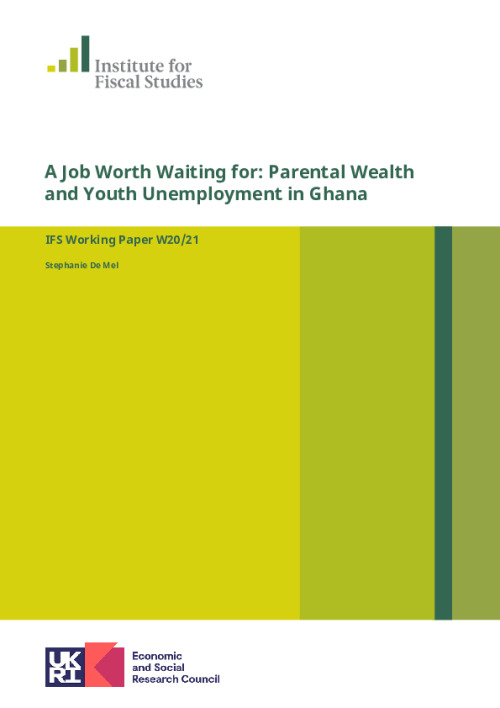Youth unemployment in Ghana increases in parental wealth. This occurs because, without unemployment insurance, only workers with sufficiently high parental wealth can afford to remain unemployed, and do so to search for scarce, high-productivity jobs. I estimate a structural model of endogenous education, employment and occupational choice to quantify this effect; I demonstrate that it leads to low educational attainment, high income inequality, and low match efficiency among workers of heterogeneous ability. I decompose the effect of wealth on average lifetime earnings into education and unemployment channels, and show that the latter accounts for 37% of the total effect. Further, I compare the effectiveness of two alternative policy interventions: an education subsidy and unemployment insurance. I find that the former is most effective at increasing aggregate productivity, but comes at the cost of increasing income inequality, while the later has a smaller effect on aggregate productivity, but also decreases inequality.









